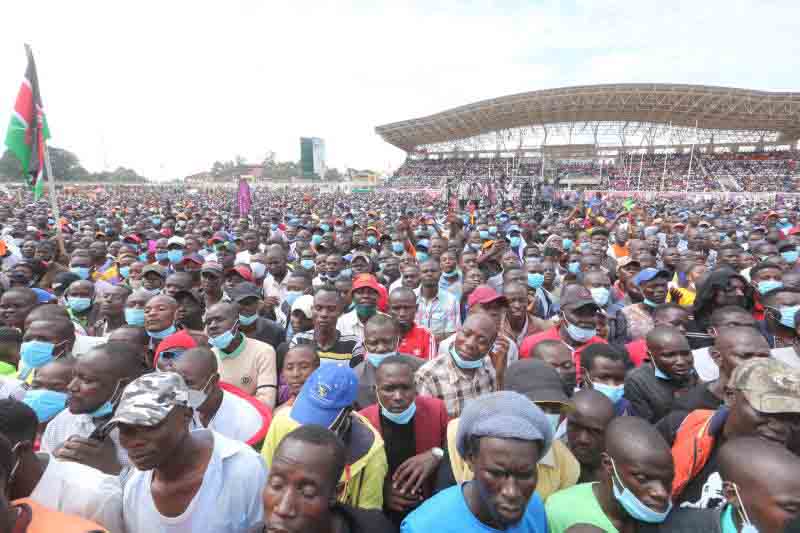×
The Standard e-Paper
Join Thousands Daily

Crowd at Bukhungu Stadium during Azimio la Umoja meeting on December 31, 2021. [Benjamin Sakwa, Standard]
I read with mixed feelings columnist Barrack Muluka’s opinion last week titled 'Mulembe nation’s foolishness is good news to Ruto and Raila'.